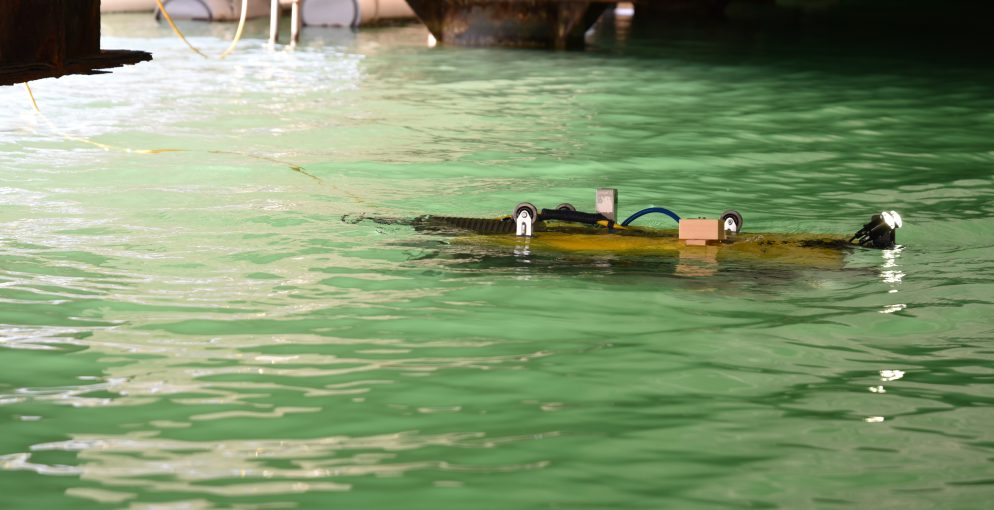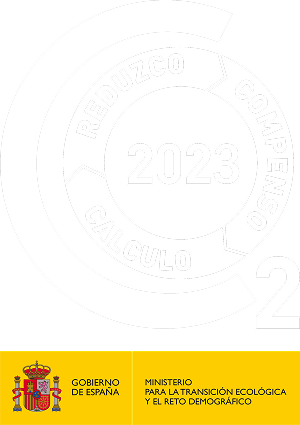- The UNDERSEC project, focused on underwater security, has the participation of 22 partners from 11 countries and a budget of nearly 6 million euros.
València, 11 October 2023. – The kick-off meeting of the UNDERSEC – Underwater Security project, an initiative co-funded by the European Commission’s Horizon Europe programme, was held this week in Munich (Germany). It has brought together 22 partners from 11 countries in Europe and the Middle East, with the common objective of ensuring the safe transport of goods and people to and from European Union ports, as well as preserving operations in critical coastal, river and maritime infrastructures.
This project, led by Fraunhofer-Gesellschaft and in which the Fundación Valenciaport is participating, has a total budget of nearly 6 million euros, and is expected to be developed over a period of 36 months, ending in September 2026.
The UNDERSEC project will focus on underwater security, protecting ships and maritime infrastructure against illegal acts. It will test the following technologies: continuous (24/7) underwater security surveillance against potential intruders, divers, hostile underwater vehicles and illicit or dangerous containers carried by ships; on-demand scanning and inspection of ship hulls for the best possible detection, recognition and classification of hidden or missing illicit and dangerous materials; underwater inspections of port entrances, seabed and berthing sites, as a basis for the best possible detection of hazardous items such as CBRNE packages (consisting of chemical, biological, radioactive, nuclear or explosive materials) at these sites, as well as for implementing deterrence and response measures, in order to prevent or deter illicit acts and avoid unwanted escalation of security incidents.
To this end, the UNDERSEC project team will develop a comprehensive underwater security solution that will offer users the possibility to enhance their capabilities to conduct security operations by effectively fulfilling their mission. UNDERSEC will develop a modular/holistic approach for Underwater Security Situational Awareness of ships, ports and maritime infrastructures (concept including continuously updated security risk assessment, 24/7 underwater surveillance, early threat detection, as well as recognition and classification of threats and suspicious objects). It will also develop a prototype Decision Support System (what, where, when, what next and how) and Response (deterrent warnings to various intruders and illegal or dangerous objects).
Fundación Valenciaport’s role in the project will focus on the specification of operational user requirements, taking into account specific legislative, regulatory and policy frameworks for safety and security. In addition, it will work on the detailed definition and implementation of the Use Case Demonstration Pilot, which will be carried out in the facilities of the Port of Valencia, allowing the testing, demonstration and evaluation of the systems developed in the project.
UNDERSEC Consortium
The UNDERSEC consortium consists of 22 partners representing 11 countries: Germany, Israel, Bulgaria, Greece, Croatia, Cyprus, Spain, Italy, Luxembourg, Portugal and Romania.
In addition to the Fraunhofer-Gesellschaft and the Fundación Valenciaport, the project involves the Autorita di Sistema Portuale del Mare Adriatico Centro-Settentrionale – Porto Di Ravenna; Cnt Technologies Societa a Responsabilita Limitata Semplificata; Dromon Bureau of Shipping Limited; Elliniko Mesogeiako Panepistimio; European Dynamics Luxembourg; Fondazione Institute for Sustainable Society and Innovation; Hellenic Centre for Marine Research; Inspectoratul Teritorial al Politiei de Frontiera Timisoara; Manibus Eood; Ministerio da Defesa Nacional (Portugal); Ministry of Defence (Israel); Ministry of Maritime Affairs and Insular Policy (Greece); Oceanscan – Marine Systems & Technology; Organismos Limenos Lavriou Anonymi Etaireia; Panepistimio Dytikis Attikis; Probotek Ike; Rafael Advanced Defence Systems; Ruder Boskovic Institute; Sociedad Anonima De Electronica Submarina; and Tel Aviv University.
This array of partners brings diverse expertise to the project, spanning universities, research centres, governmental organisations, including ministries from multiple nations, as well as technology companies.


